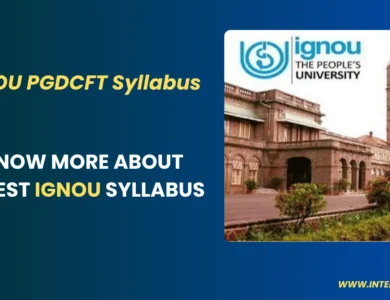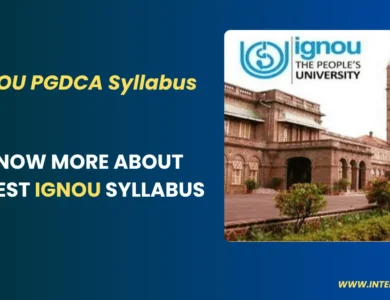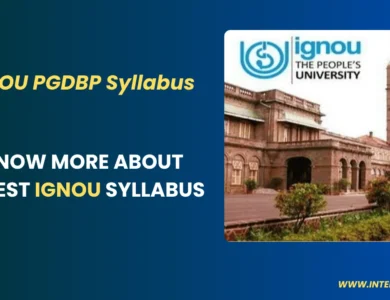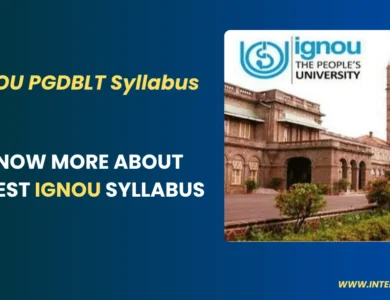IGNOU PGDMIDI Syllabus 2025
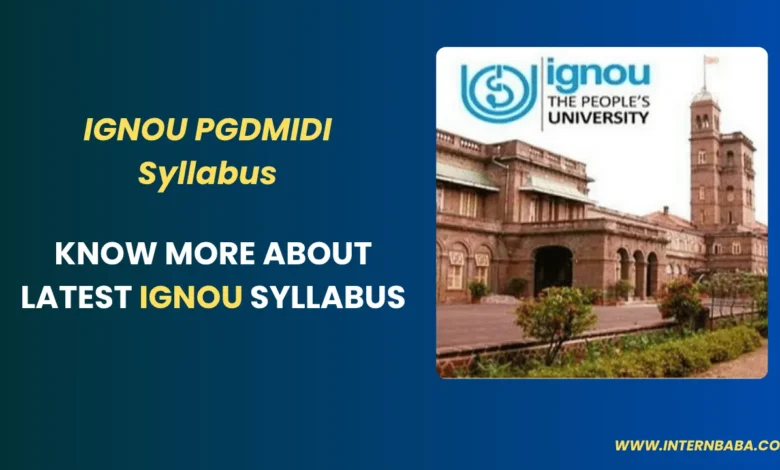
Choosing the right academic path can be overwhelming, especially when you’re exploring specialized programs like the Post Graduate Diploma in Migration and Diaspora (PGDMIDI) offered by IGNOU. With globalization and transnational movement on the rise, migration studies have become increasingly relevant. If you’re planning to enroll or are already part of the PGDMIDI program, understanding the syllabus structure is essential to ensuring a smooth academic journey. IGNOU has structured this program using a credit-based system, which is designed to help students manage their workload, track academic progress, and meet qualification requirements effectively.
In this guide, we’ll break down the IGNOU PGDMIDI syllabus for 2025, discuss credit distribution, highlight each course, and provide answers to frequently asked questions. Whether you’re a new student or someone considering re-registration, this comprehensive resource will help you plan and succeed.
Overview of IGNOU PGDMIDI Program
The PGDMIDI program is designed to impart advanced knowledge about global migration and diaspora issues. It addresses socio-political, economic, and cultural dimensions of migration. The program offers insights into transnational identities, gender and diaspora, and policy aspects related to migrant populations. It’s ideal for learners from varied backgrounds including sociology, anthropology, political science, and development studies.
| Program Details | Description |
|---|---|
| Program Name | Post Graduate Diploma in Migration and Diaspora |
| Exam System | Annual |
| Total Credits | 32 |
| Program Category | IGNOU PGDMIDI |
The PGDMIDI program is offered under the School of Interdisciplinary and Trans-disciplinary Studies (SOITS) at IGNOU. It is delivered via open and distance learning (ODL) mode, which provides flexibility to learners from different geographic and professional backgrounds.
Detailed Course Structure: IGNOU PGDMIDI Syllabus 2025
Students are required to complete a total of 32 credits. The syllabus includes core courses, elective options, and a mandatory project work. This mix of theory and practical application ensures a well-rounded learning experience.
| Course Code | Course Title | Credits |
| MDL-1 | Migration and Diaspora: Theory and Methodology | 4 |
| MDL-2 | Transnationalism, Diaspora and Citizenship | 4 |
| MDL-3 | Global Diaspora: Case Studies | 4 |
| MDL-4 | Indian Diaspora: An Overview | 4 |
| MDL-5 | Indian Diaspora: Politico-Economic and Policy Aspects | 4 |
| MDL-6 | Indian Diaspora: Socio-Cultural Facets | 4 |
| MDLE-1 | Gender and Diaspora (Elective) | 4 |
| MDLE-2 | Diasporas in India (Elective) | 4 |
| MDLP-1 | Project Work | 8 |
| Total Credits | 32 |
Note: Students can choose from the electives (MDLE-1 or MDLE-2) as per their interests. However, it’s important to check with your regional center regarding availability and academic scheduling.
Understanding the Credit System
IGNOU’s credit system is designed to ensure academic flexibility and balanced learning. Each course carries a specific number of credits that reflect the expected amount of work.
- 1 Credit = 30 Study Hours
- Total Required Credits = 32
These 30 hours may include reading the self-learning materials, attending counseling sessions, completing assignments, and preparing for term-end exams. The project work (MDLP-1) is an integral part and carries 8 credits, reflecting its research-intensive nature.
Key Features of the PGDMIDI Program
- Interdisciplinary Focus: Integrates multiple disciplines such as sociology, political science, and development studies.
- Flexible Electives: Elective courses allow students to tailor their learning based on interest and career aspirations.
- Field-based Project Work: Encourages application of theoretical knowledge in practical settings.
- Annual Examination Format: Gives ample time for preparation and assignment submissions.
- Updated Curriculum: Reflects global trends in migration, policy changes, and diaspora engagement.
Ideal Candidates for PGDMIDI
This program is especially suited for:
- Graduates in social sciences or humanities
- Government officers and policy makers
- NGO workers dealing with migration or refugee issues
- Journalists and researchers in international studies
- Professionals looking to enhance knowledge of global diaspora dynamics
No prior work experience is mandatory, but having a keen interest in migration and diaspora studies will greatly enhance learning outcomes.
Advantages of Pursuing PGDMIDI from IGNOU
- Reputation and Reach: IGNOU is India’s premier distance learning institution with global recognition.
- Accessible Learning: Study from any location without compromising your job or personal responsibilities.
- Cost-Effective Education: Low tuition fees make it accessible to students from diverse economic backgrounds.
- Comprehensive Support: Study material, regional centers, counseling sessions, and online platforms support your learning journey.
Admission and Re-Registration Process
You can apply for the PGDMIDI program online through the official IGNOU admission portal. Make sure to:
- Review eligibility criteria (Bachelor’s degree in any discipline)
- Submit required documents (ID proof, educational qualifications, photo)
- Pay the applicable fee as per the fee structure mentioned on the portal
Re-registration is required for continuing in the second year or for project submission if not completed in the first year.
Frequently Asked Questions (FAQs)
Q1. What is the duration of the PGDMIDI program at IGNOU?
The minimum duration is 1 year, while the maximum is 3 years. This gives students flexibility based on their availability and pace of learning.
Q2. How many total credits are required for completion?
You need to earn 32 credits through a combination of core courses, electives, and a mandatory project.
Q3. Can non-social science graduates apply for this program?
Yes. The program is open to graduates from any discipline. However, a background in humanities may help grasp concepts more quickly.
Q4. How is the project work evaluated?
Students must submit a research-based project on a topic related to migration and diaspora. The evaluation includes assessment of methodology, analysis, and adherence to guidelines.
Q5. Is the PGDMIDI program suitable for working professionals?
Absolutely. The ODL mode, annual examination system, and flexible schedule make it ideal for those balancing work and study.
Final Thoughts
The IGNOU PGDMIDI Syllabus 2025 is a thoughtfully designed academic program that prepares students for careers and research in migration and diaspora studies. Its interdisciplinary approach, flexible structure, and emphasis on practical application make it highly relevant in today’s globalized world. By understanding the syllabus and course structure in detail, students can plan their academic journey effectively and achieve their educational goals.
For the most up-to-date information, visit the official IGNOU website or consult your nearest regional center.
Plan wisely, stay focused, and make the most of your learning journey with IGNOU PGDMIDI.


